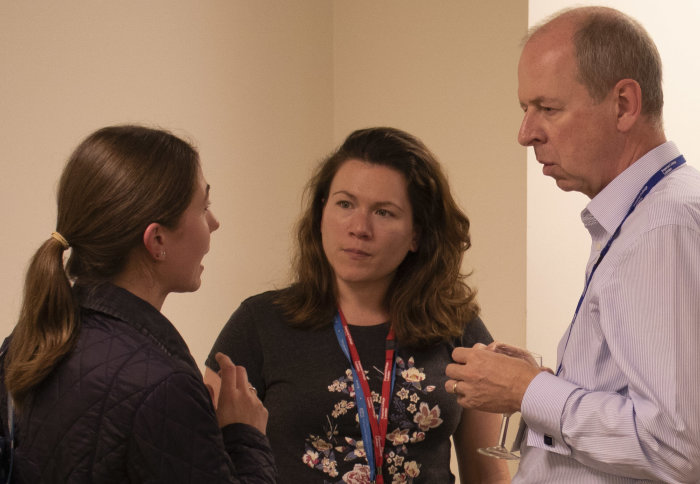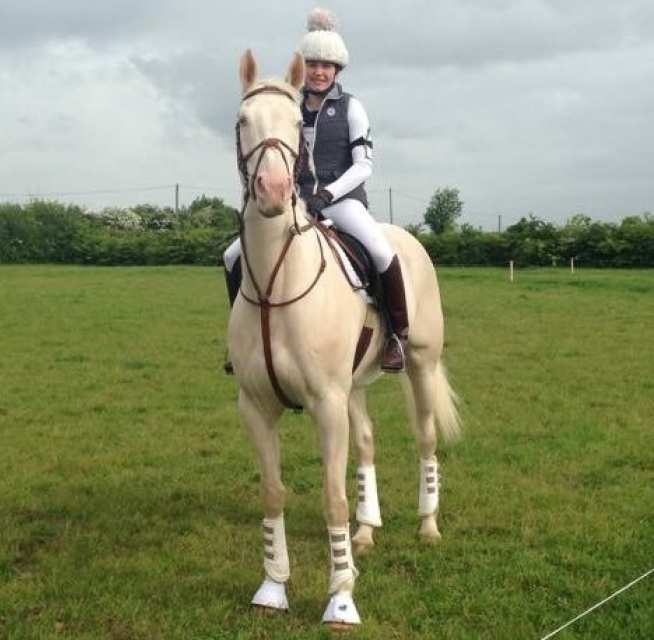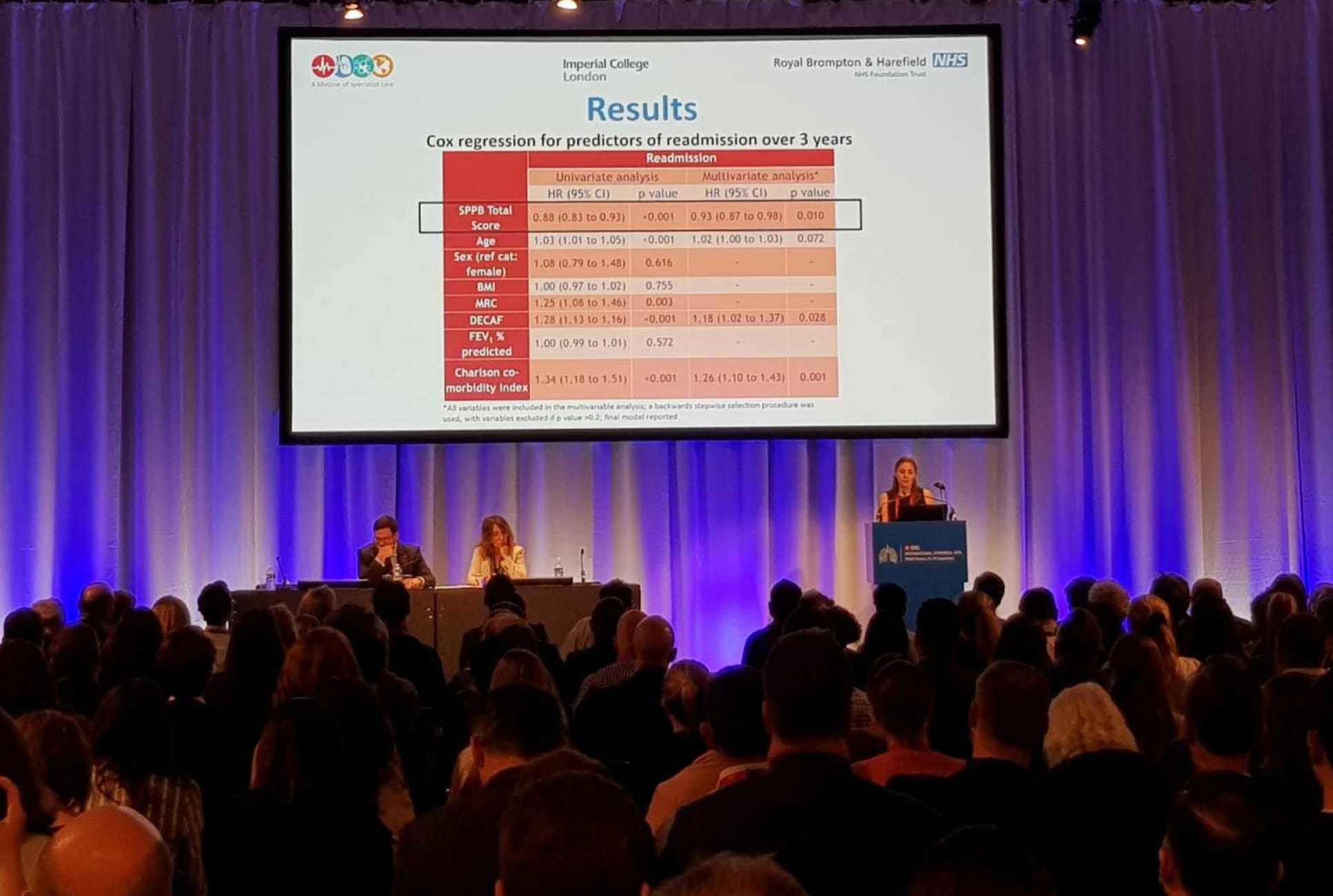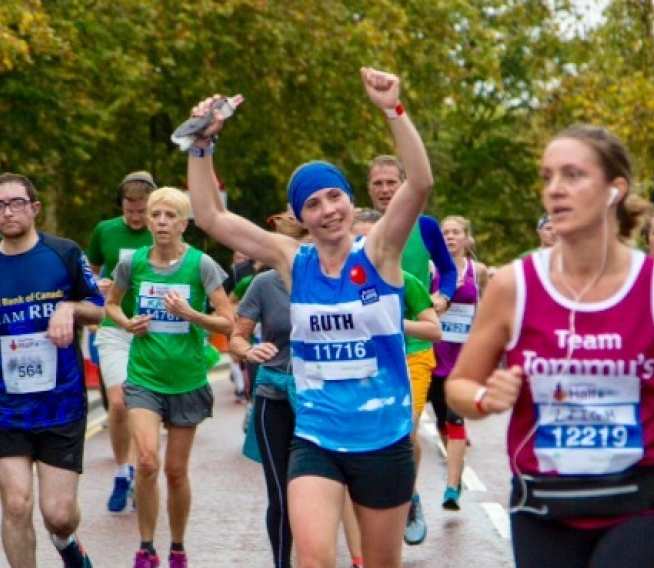Striking the right balance: postgraduate study as a healthcare professional

Ruth Barker, a PhD student with the National Heart and Lung Institute, gives us an insight into working as physiotherapist whilst studying.
Ruth spoke to Lizzie Lomer about her job as a physiotherapist, her research into patients with lung problems, juggling her work with her studies and having the best of both the city and the countryside.
“Although I have worked as a clinical physiotherapist, I have always had an interest in research and tried to combine this with my clinical career” Ruth Barker
Ruth's research is patient-centred, working in hospitals and the patient’s home, rather than in a laboratory. Ruth spends some time working with and shadowing clinical teams involved in managing patients who have been admitted to hospital for a flare-up of their lung disease. Ruth previously undertook an MRes funded by the National Institute for Health Research (NIHR) before joining the Harefield Pulmonary Rehabilitation and Muscle Research group in 2016.
Did you always know that you wanted to be a physio?

I actually wanted to work with horses! I have always been a keen rider and have competed at a high standard. After my BSc in Physiotherapy, the plan was to work for a few years and save enough money so I could self-fund an MSc in Veterinary Physiotherapy. I thought I could affiliate myself with a few racing yards and work with race horses as well as the jockeys.
However, after graduating, I decided that I didn’t want to make my hobby my job, as horses were my ‘down-time’ after a long or stressful day. I also realised I really liked working with people as much as horses! Now I can’t imagine doing anything else even though it isn’t quite what I originally planned.
What is the subject of your PhD?
The focus of my PhD is improving uptake and access to early pulmonary rehabilitation - a programme of care that includes exercise-training and education - for patients who have been hospitalised with acute exacerbations of Chronic Obstructive Pulmonary Disease (COPD). COPD is the most common long-term lung disease in older people and is the second most common reason for emergency hospital admission.
At hospital discharge, many people with COPD are physically inactive because of breathlessness, and have developed weakness and wasting of their muscles. Previous research has demonstrated the effectiveness of pulmonary rehabilitation in improving exercise capacity and quality of life after hospital discharge. However, only a small proportion of people who might benefit actually receive pulmonary rehabilitation. My PhD looks at different ways of increasing the uptake and accessibility to pulmonary rehabilitation, looking at using education videos or providing pulmonary rehabilitation in more accessible settings, such as people’s homes.

How did you set about finding funding for your PhD?
In 2016, I took up a research physiotherapy job in the Harefield Pulmonary Rehabilitation and Muscle Research group, headed by Dr William Man. It was my first research post, having only worked in the NHS until then. It was a great, supportive experience and I was lucky to work with other research physiotherapists who were undertaking a PhD at Imperial College London as well as with more senior post-doctoral physiotherapy researchers. From there on, I was really motivated to follow a similar pathway, and with support from Dr Man, I was successful in being awarded a NIHR Clinical Doctoral Research Fellowship which pays my salary, PhD fees and the research costs.
The Harefield Pulmonary Rehabilitation and Muscle Research group is affiliated with the NHLI, and I really enjoyed working within this team. Other team members who had started their PhDs were very complimentary about the infrastructural support the NHLI provided, and the NHLI is of course world-leading in respiratory research and hosts some of the world’s leading COPD experts. I feel hugely fortunate to now be supervised by some of these experts myself.
What’s the best and worst thing about your job?
The best thing about my job is that I get to work and mix with great clinicians and brilliant researchers. I work with the Harefield Pulmonary Rehabilitation Unit which is one of the largest clinical pulmonary rehabilitation services in the UK and is internationally renowned for its high clinical standards.

I also work within the Hillingdon Integrated Respiratory Service headed by Dr Samantha Kon (a past Imperial PhD student), which was recently commended as exemplar by NHS England. This keeps me focused on the primary reason I wanted to get involved in research and do my PhD, which is to improve patient care.
From the research perspective, I have four supervisors, who all bring expertise from their areas; Dr William Man and Professor Wisia Wedzicha from NHLI; Dr Matthew Maddocks at Kings College London; and Dr Morag Farquhar at University of East Anglia.
The hardest thing about my job is the challenge of maintaining a healthy work-life balance. I am a keen sportswoman, and ride horses at a competitive level and enjoy running. I’ve run several half-marathons in the past year to raise money for the British Lung Foundation. So maintaining this, whilst keeping focused on my PhD requires good time management!
What’s the best thing about working in London?
I love getting up before work to muck out and do my horses so working in London wasn’t always high up in my priorities. However, now that I am here, I appreciate all the academic, clinical and social opportunities that it brings. As I am largely based at Harefield Hospital on the outskirts of London, I can still see horses out of my office window so I have the best of both worlds!
Where do you see yourself in the future?
After I’ve completed my PhD I’d like to work as a clinical academic in patient-centred research having a real world impact on COPD patient’s lives and quality of life. My passion is in the management of acute exacerbations of COPD. I would like to have transitioned from being a novice researcher to an independent investigator and running my own group.
Over the last few years I have been looking at the career paths of other physiotherapists I have realised that no one has quite done the same thing or followed the same path to get there. So now I am absolutely determined to give the most I can to whatever I am doing at the time, because I believe that if you are really good at what you’re doing, you’ll eventually end up with the job and career you want.
Article text (excluding photos or graphics) © Imperial College London.
Photos and graphics subject to third party copyright used with permission or © Imperial College London.
Reporter
Miss Lizzie Lomer
National Heart & Lung Institute